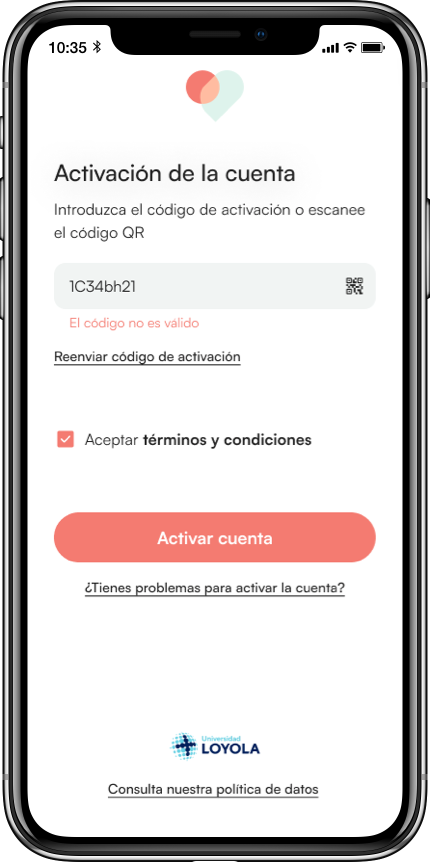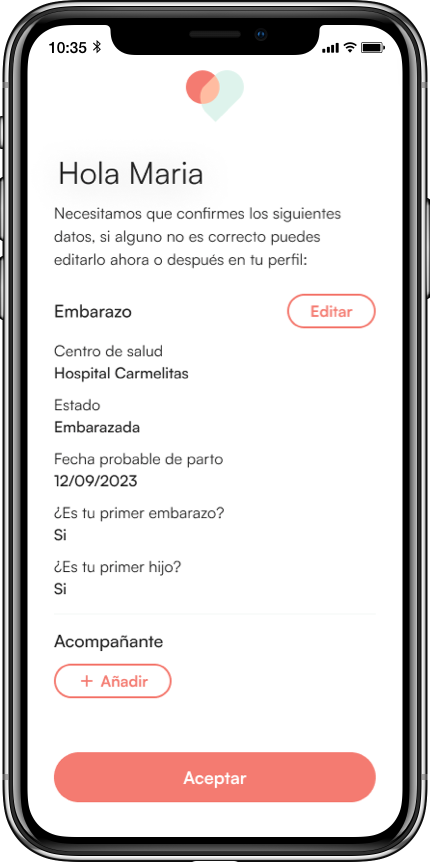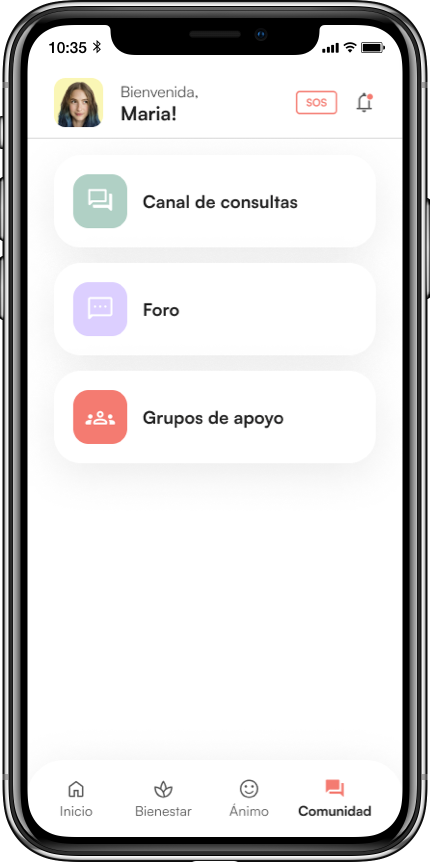The perinatal period, which covers pregnancy and the first year after childbirth, represents a time of profound psychological and physical changes for women. These changes often increase women’s vulnerability to mental disorders, with an estimated 15-20% of women globally experiencing perinatal depression or anxiety. Without appropriate intervention, these perinatal mental disorders can profoundly affect the well-being of women, alter family dynamics, and negatively impact the development of their children.
Despite the high prevalence and severe impact of maternal perinatal mental disorders, it remains an under-recognized issue. Structural barriers, such as the availability of health services and the stigma surrounding mental health, further complicate the situation. The inadequacy of current prevention and treatment approaches –even in middle- and high-income countries– underscores an urgent need for more effective strategies. The high incidence of new cases of perinatal depression and anxiety emphasizes the crucial need for a shift toward primary prevention.
Addressing this need, the e-Perinatal project (officially titled Universal prevention of maternal mental disorders and its implementation as normalized routine practice) emerges as a pivotal initiative. Funded by the European Research Council under the HORIZON program and part of the ERC Starting Grant 2021, this project is at the forefront of innovating universal preventive interventions for maternal perinatal mental disorders. e-Perinatal is designed to transform these interventions into standard practice in global healthcare services, employing a combination of traditional and emerging methodological frameworks and emphasizing patient and public involvement in research.
This ambitious project, led by a multidisciplinary team, promises to set new standards in the field, offering a comprehensive approach to addressing one of the most pressing public health challenges of our time.
Take a look at the Mission, Vision, and Values of the e-Perinatal project.
Promoting perinatal wellbeing
Dedicated to developing and implementing effective preventive interventions for maternal perinatal mental disorders, addressing a critical area of public health.
Preventive interventions for perinatal mental disorders as routine healthcare practice
With the objective of generating scientific evidence that supports the effectiveness of universal preventive interventions for maternal perinatal mental disorders and their integration as normalised practice in healthcare services.
Innovation. Continuously seeking innovative solutions and approaches to improve perinatal mental health.
Explore our objectives!
Feasibility of e-Perinatal
Develop and evaluate the feasibility of an innovative mHealth psychological intervention.
Effectiveness in real world
To evaluate the real-world effectiveness of e-Perinatal personalised the incidence of maternal depression and anxiety disorders, reducing father/partner depression and anxiety symptoms, and promoting child health and development.
Causal Mechanisms
Identify the underlying mechanisms that explain the intervention’s effectiveness.
Explanatory Models
Develop novel explanatory models for universal prevention of perinatal mental disorders.
Implementation Process
Understand barriers, facilitators and determinants of successful implementation.
Toolkit Development
Develop a toolkit to support implementation research in real-world settings.
Project methodology
The e-Perinatal research program adheres to the first three phases recommended by the Medical Research Council framework, designed for the development and evaluation of complex interventions. This approach is divided into four iterative work packages (WPs): the development of the e-Perinatal app (WP1), the feasibility and pilot Randomized Controlled Trial (WP2), the evaluation using hybrid Randomized Controlled Trial (WP3), and the creation of a novel explanatory model together with a toolkit for implementation (WP4). This structured methodology ensures a thorough and systematic exploration of the project’s objectives.
Recognizing the high-risk nature of this complex study, the research leverages existing infrastructure and stakeholder relationships, focusing primarily on Andalusia, Spain. The region’s alignment with the prevalence of maternal perinatal depression and anxiety, both locally and in other European contexts, makes it an ideal location for this study. Collaborations with University Loyola Andalusia, the Regional Ministry of Health of Andalusia, local health societies and clinical experts will play a crucial role. These partnerships will provide a comprehensive understanding of the healthcare landscape. Patient and Public Involvement (PPI) is an integral part of the project, involving local user groups and professional networks in the design, conduct, reporting, and dissemination of the research, following international PPI guidelines. This involvement ensures that the research remains relevant, grounded, and effectively communicated across various platforms.
Focused on knowledge transfer
The e-Perinatal project has a strong emphasis on knowledge transfer, particularly through the use of the e-Perinatal app, a multicomponent mHealth intervention. This app is designed not only to support the mother-child dyad and enhance family functioning, but also to actively prevent maternal perinatal depression and anxiety disorders. It is intended for integration into routine maternal care, with an inclusive approach that encourages women to involve their partners or significant others, ensuring a comprehensive impact.




The e-Perinatal app is a self-guided and multi-component tool that encompasses several elements:
- Modules and sessions. It has psychological, psychoeducational, and exercise-based digital micro-interventions, organized in approximately 30 modules in 8 thematic blocks, with a total of around 75 sessions. Each session is designed to be concise (1-3 minutes) to fit into user’s busy lives.
- Personalized modules. The app also includes a feature for recommending personalized modules (“top two choices”) to participants. These recommendations are tailored to each user’s risk profile, needs, and preferences during the perinatal period, ensuring a customized experience.
- Health and social resources. A variety of health and social resources are integrated into the app to provide comprehensive support to users.
The basis of the e-Perinatal app is patient autonomy. By offering conditions that support patients’ choice of modules and sessions, the app allows users to take an active role in their mental health care. The personalized module recommendations are generated through a hybrid recommender system model, aligning with the specific risk profiles, needs, and preferences of participants during the perinatal period.
Through this innovative approach, the e-Perinatal project aims to revolutionize maternal care by providing easy access to mental health support and education, thus significantly contributing to the prevention of perinatal depression and anxiety disorders. The ultimate goal is to ensure that this valuable knowledge and resource reaches the hands of those who need it most, making a tangible difference in the lives of families during the perinatal period.
What outcomes do we expect?
As we embark on the e-Perinatal project, our goals are not only to improve symptoms, but also to change the approach to maternal mental health. Here is what we anticipate:
1 Effectiveness of universal preventive intervention
Our goal is to provide high-quality evidence of the effectiveness of a universal intervention in reducing the incidence of maternal depression and anxiety disorders. This evidence will be groundbreaking, showing that it is possible to prevent the onset of maternal perinatal mental disorders, and will promote research into interventions addressing both depression and anxiety disorders.
2 Beyond the mother: Prevention in the father
For the first time, we will offer evidence on the effectiveness of maternal perinatal mental disorders preventive intervention for both mothers and fathers. This approach will enhance our understanding of the co-occurrence of maternal and paternal depression and anxiety disorders and their impact on child health and development, thereby informing optimal policy decisions for perinatal mental disorders prevention.
3 Causal mechanisms and explanatory model
By identifying the causal mechanisms and significant moderators and mediators for the effectiveness of preventive interventions, we aim to behaviour a novel explanatory model. This behaviour integrates the results of the effectiveness and underlying causal mechanisms, providing a comprehensive understanding of behaviour change and optimising intervention strategies.
4 Innovative and personalized mHealth intervention
The e-Perinatal app represents a personalized and co-designed mHealth psychological intervention. Its development and testing in real-world trials will yield a large sample size of high-quality data, facilitating the objectives of the project.
5 Personalization of preventive
We go beyond standardised interventions by offering personalised recommendations based on participants’ risk profiles, needs, and preferences. This approach aims to enhance the adherence and effectiveness of e-Perinatal intervention.
6 Normalization of preventive interventions
By gaining insights into the implementation process and identifying determinants of practice, we will support the normalization of evidence-based universal preventive interventions in routine healthcare practice. The knowledge gained will be integrated into a toolkit for implementation research, thereby enhancing the translation of these findings into routine practice.